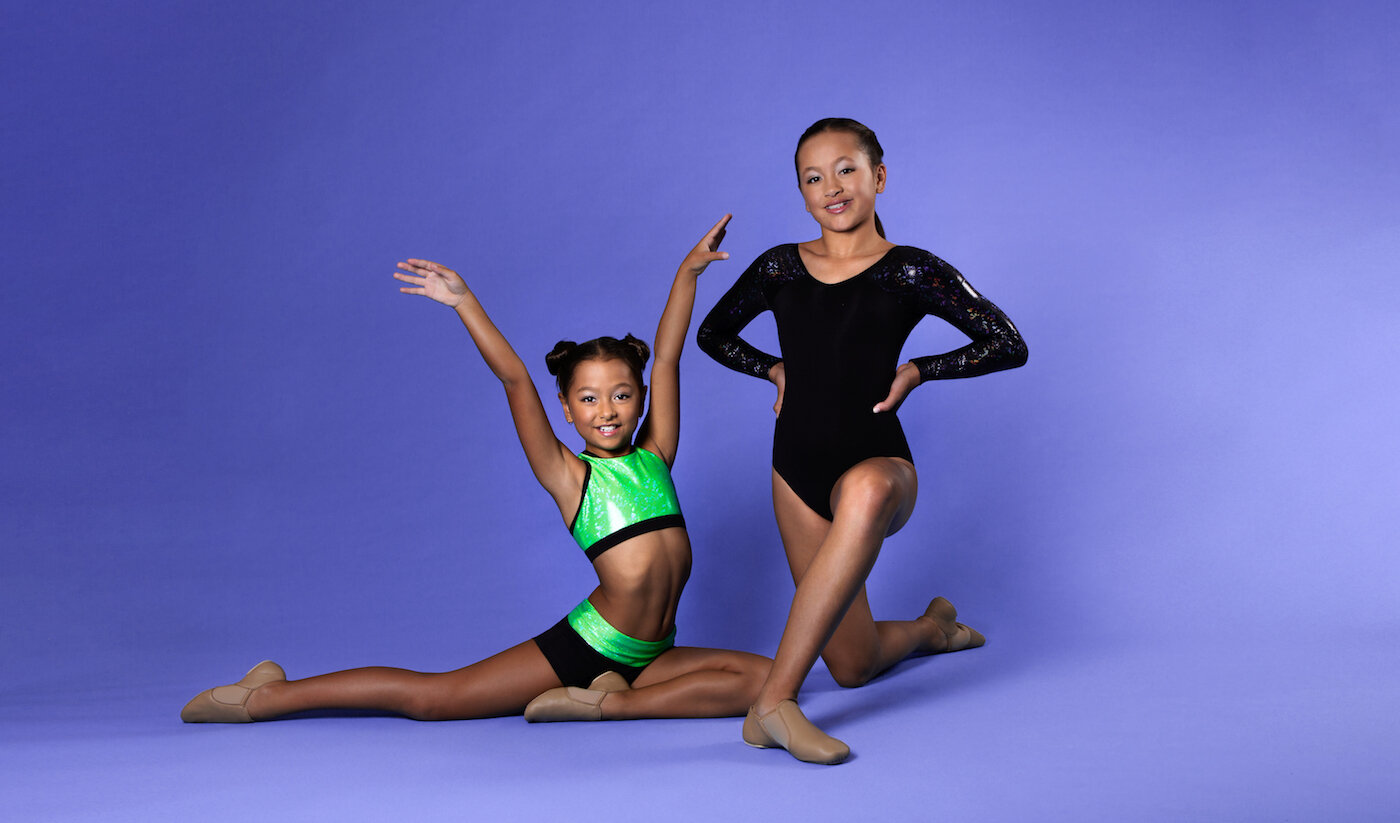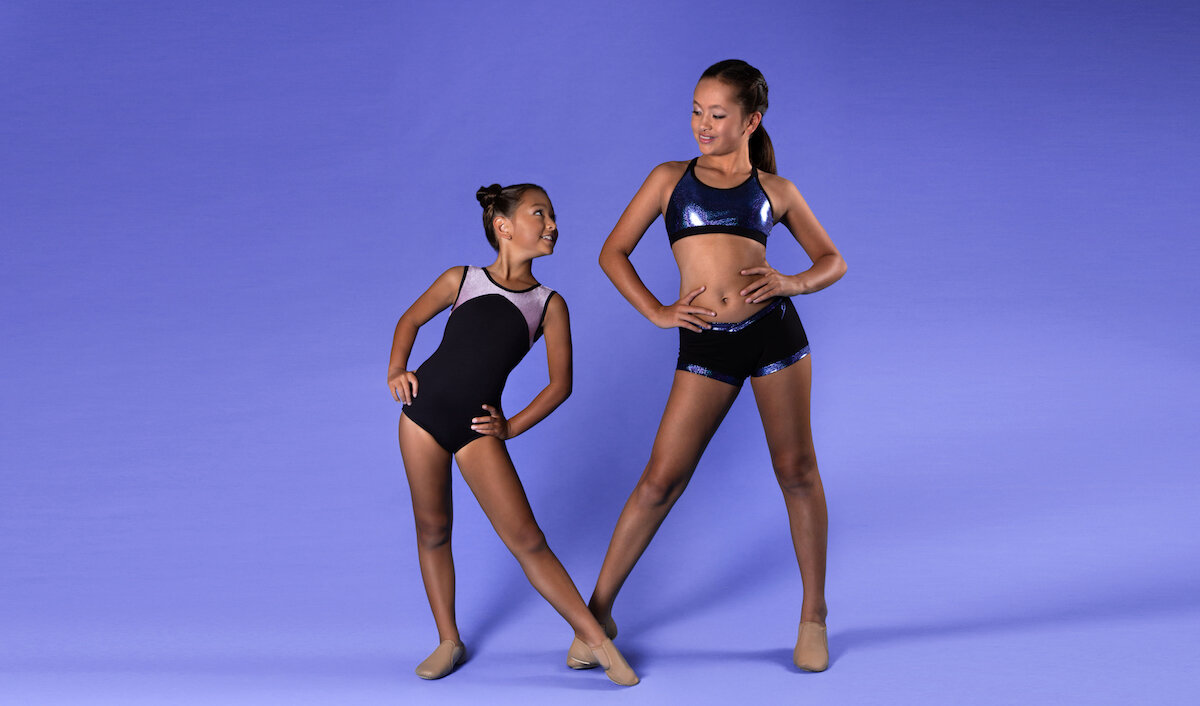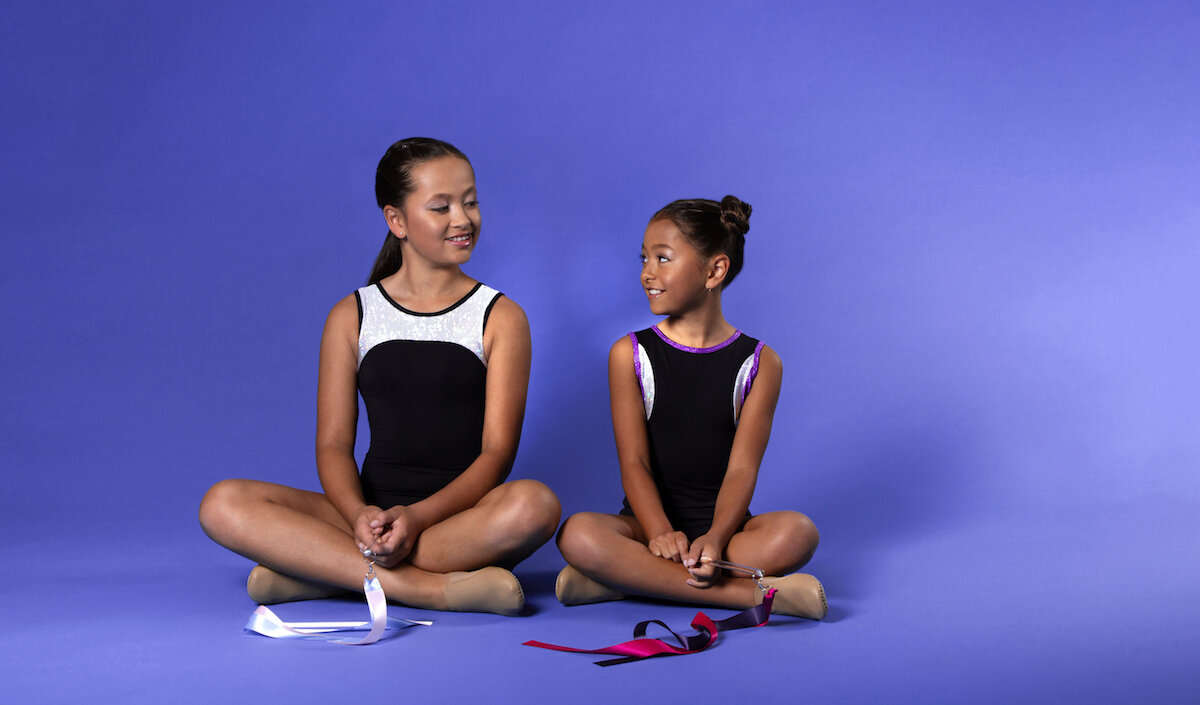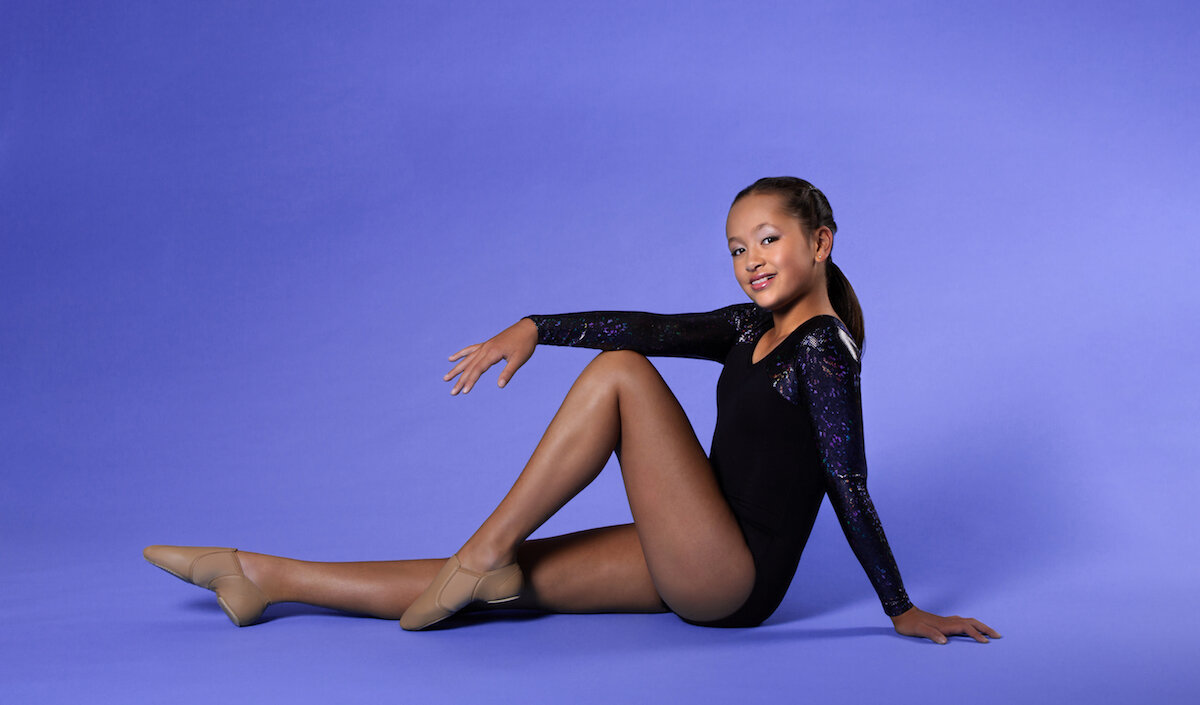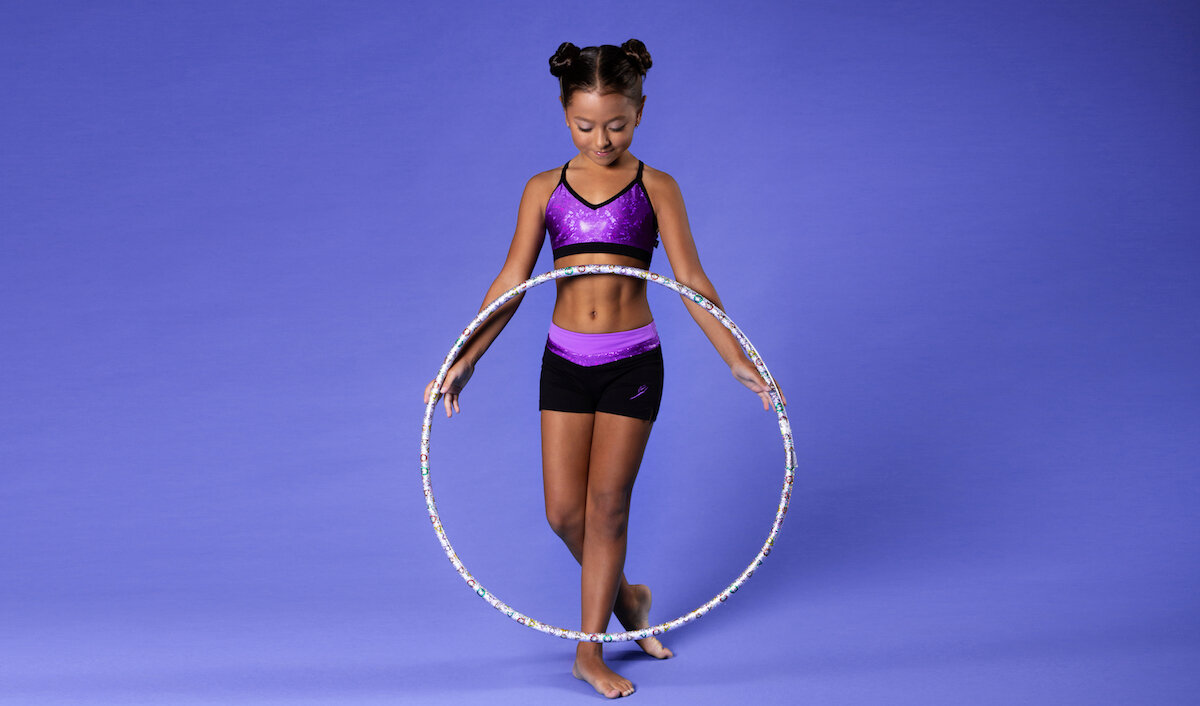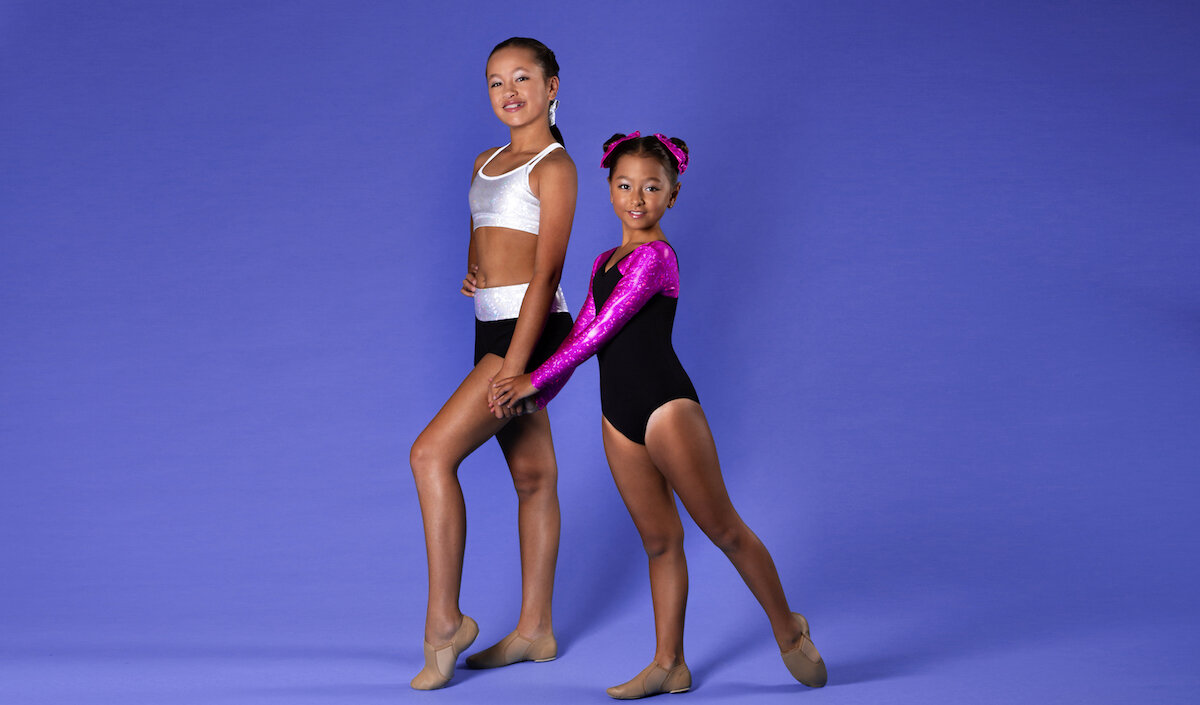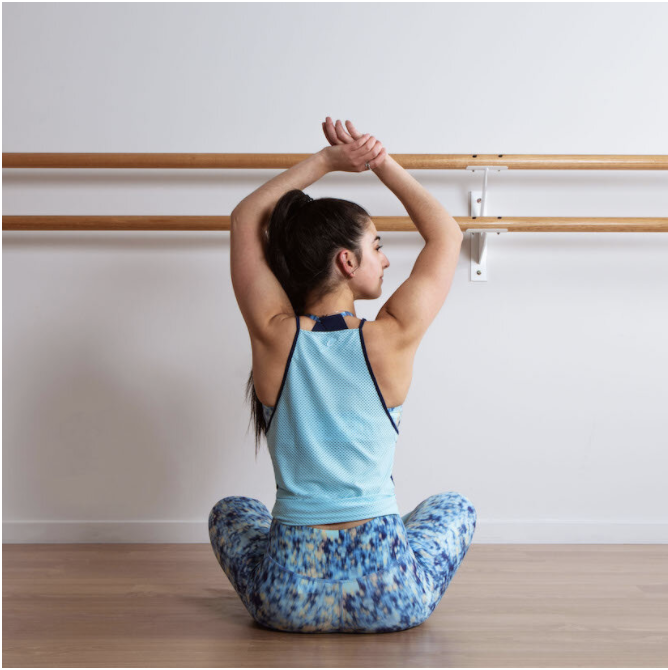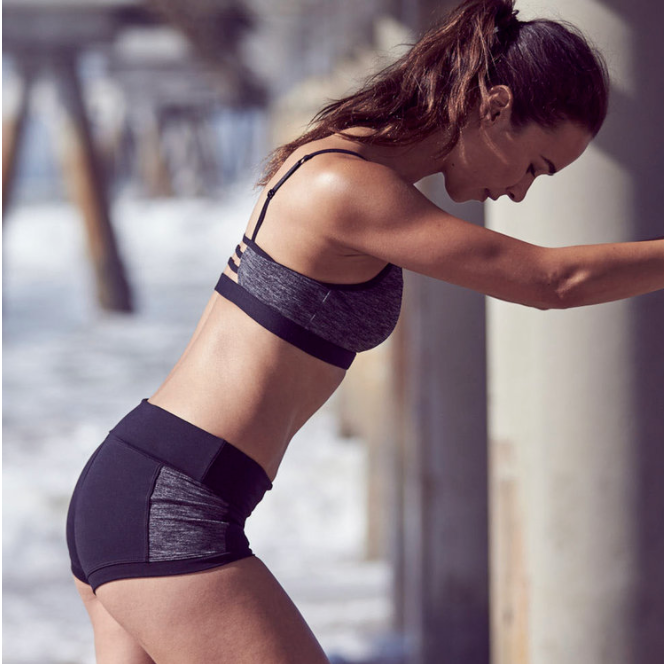Simple Tips to become a Great Gymnast
A sport for life which allows healthy minds and bodies to develop now and for the future, gymnastics combines both strength and artistry to create a beautiful art form. Through the improvement of balance, co-ordination, and confidence in body movement, it also builds self-esteem, strength, and flexibility to prepare the body and mind for life’s challenges. Conducted within a safe environment it not only caters for personal growth through the development of mental perseverance, it also creates a feeling and sense of inclusion with the bonding and team work that comes from being part of a supportive community. In order for one to become a great gymnast, hard work and dedication are two words that spring to mind. We’ve provided six simple tips that will support you as you tumble out of trouble and spin to success.
Eliza wears the Sophie Leotard and Shattered Glass Scrunchies in Hot Pink, the Neoprene Acro Boot in Tan, and uses the Ribbon Stick.
Plyometric Exercises
Plyometrics are exercises in which muscles exert maximum force in short intervals of time with the goal of increasing power through speed and strength. Not only do they improve strength and speed, they also increase endurance and power. Most plyometric exercises are aerobic exercises which get the heart rate up, further improving stamina. Examples include skipping, hopping, lunges, jump squats, star jumps, and burpees. The inclusion of these exercises will support and improve the foundations that most skills evolve from.
Eliza wears the Meg Leotard in Candy and the Neoprene Acro Boot in Tan. Chloe wears the Isabelle Crop Top and Anna Boy Leg Short in Cobalt and the Neoprene Acro Boot in Tan.
Upper body strength exercises
Gymnasts use every major muscle group in their body to perform various skills that make up a routine. Often upper body strength is forgotten and the focus ends up being on the lower half of the body. However, significant upper body strength needs to be developed as many skills require ones body weight to be held and thrown by the use of their arms. Basic arm pushups as well as incline and decline pushups can help develop chest and bicep strength to keep you steady during a handstand. Other exercises to improve upper body strength include chin ups/pull ups, planks, tricep dips, and handstands against the wall.
Chloe wears the Star Leotard in Silver and Eliza wears the Millie Leotard in Party Purple. Both wear the Neoprene Acro Boot in Tan and carry the Ribbon Sticks.
Stretching and Warming Up
Warming up gets the blood flowing, allowing us to stretch as effectively as possible, preventing strains and sprains. Warm muscles increase the rate of energy production, improving reflexes, and lowering the time it takes to contract a muscle. By promoting blood flow, the joints and tendons loosen, putting less stress on these areas. Having well lubricated joints prepares the body to execute sudden or explosive movements with ease. Warming up also gives you time to mentally prepare for the task ahead. Visualise what you will be doing and what you want to achieve before you start so you have a clear aim and something to work towards.
Chloe wears the Sophie Leotard in Black and Neoprene Acro Boot in Tan.
Work progressively and revise basics
Skill progressions use each skill learnt as a building block to a more advanced skill level. Once a skill has been learnt and mastered, a new skill is introduced to increase the challenge, keeping the individual engaged and enhancing their development. Building upon skills reduces the risk of injuries as the foundations required will have already been established. If a skill is attempted without having experience or understanding of its basic fundamental steps, the ability to achieve that skill will be reduced and the chance of injury increases. Don’t be afraid to go back to basics in order to attempt a new skill!
Eliza wears the Paris Crop Top and Molly Short in Party Purple. Chloe wears the Evelyn Crop Top and Bailey 7/8 Legging in Hot Pink.
Create Balance between Work and Rest
We all want to learn new skills, move to the next level, and improve our technique but small strains that you may not be aware of can lead to worse injuries if we don’t let them heal. Resting is one of the most underrated strength-building exercises. It’s also one of the most important precautions against injuries. While it’s important to train consistently to maintain strength, skills, and, stamina, it’s equally important to rest and allow enough time for your body to recover from the recent workout it’s done. Allowing time for adequate rest enables the body to replenish energy stores and repair damaged tissues. Enjoy spending time with your family and friends, watch your favourite TV show, spend some time in the sun and just do something you enjoy doing!
Eliza wears the Paris Crop Top and Molly Short in Party Purple.
Fuel your body
Fuelling your body is essential to ensure you have the strength and stamina to support yourself during long practices. Plan meals and snacks so you can eat consistently and frequently, maintaining energy levels and sustaining blood sugar levels. Focus on balancing your meals with a variety of complex carbohydrates, protein, and ‘good’ fats to support muscle recovery and energy levels, and ensure you maintain hydration levels by drinking water or electrolyte drinks throughout the day. Consider your diet an integral part of your training to help you achieve your goals.
Chloe wears the Roxy Crop Top, Kylie Short and Shattered Glass Scrunchie in Silver. Eliza wears the Sophie Leotard and Shattered Glass Scrunchies in Hot Pink. Both wear the Neoprene Acro Boot in Tan.
While it may take hard work and perseverance to achieve your gymnastics goals, it doesn’t mean you can’t have fun along the way. Whether you incorporate all or only some of these tips, any extra attention paid to your training and technique will set you on the right path, supporting you as you dive head first in to your dreams!
Article by Sheree Ronai-Horvath
Photography by Elly Ford

